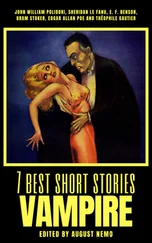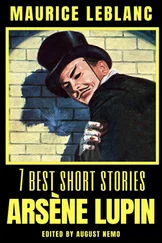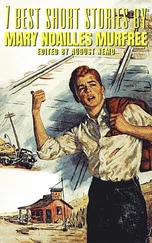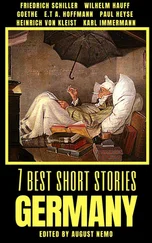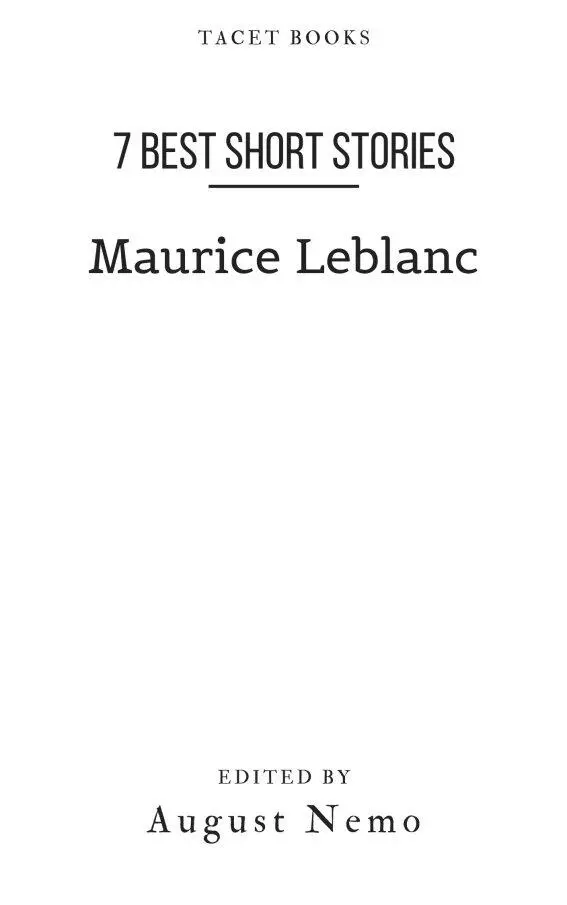
Title Page
The Author
The Invisible Prisioner
Two-Hundred Thousand Francs Reward!...
The Wedding Ring
The Sign Of The Shadow
The Infernal Trap
The Red Silk Scarf
Shadowed By Death
About the Publisher


Maurice Marie Émile Leblanc was a French novelist and writer of short stories, known primarily as the creator of the fictional gentleman thief and detective Arsène Lupin, often described as a French counterpart to Arthur Conan Doyle's creation Sherlock Holmes.
Leblanc was born in Rouen, Normandy, where he was educated at Lycée Pierre-Corneille. After studying in several countries and dropping out of law school, he settled in Paris and began to write fiction, both short crime stories and longer novels. The latter, heavily influenced by writers like Gustave Flaubert and Guy de Maupassant, were critically admired but had little commercial success.
Leblanc was largely considered little more than a writer of short stories for various French periodicals until the first Arsène Lupin story appeared in a series of short stories that was serialized in the magazine Je sais tout, starting in No. 6, dated 15 July 1905. Clearly created at editorial request under the influence of and in reaction to the wildly successful Sherlock Holmes stories, the roguish and glamorous Lupin was a surprise success and Leblanc's fame and fortune beckoned. In total, Leblanc went on to write 21 Lupin novels or collections of short stories.
The character of Lupin might have been based by Leblanc on French anarchist Marius Jacob, whose trial made headlines in March 1905. It is also possible that Leblanc had also read Octave Mirbeau's Les 21 jours d'un neurasthénique (1901), which features a gentleman thief named Arthur Lebeau, and he had seen Mirbeau's comedy Scrupules (1902), whose main character is a gentleman thief.
By 1907, Leblanc had graduated to writing full-length Lupin novels, and the reviews and sales were so good that Leblanc effectively dedicated the rest of his career to working on the Lupin stories. Like Conan Doyle, who often appeared embarrassed or hindered by the success of Sherlock Holmes and seemed to regard his success in the field of crime fiction as a detraction from his more "respectable" literary ambitions, Leblanc also appeared to have resented Lupin's success. Several times, he tried to create other characters, such as private eye Jim Barnett, but he eventually merged them with Lupin. He continued to pen Lupin tales well into the 1930s.
Leblanc also wrote two notable science fiction novels: Les Trois Yeux (1919), in which a scientist makes televisual contact with three-eyed Venusians, and Le Formidable Evènement (1920), in which an earthquake creates a new landmass between England and France.
Leblanc was awarded the Légion d'Honneur for his services to literature, and died in Perpignan in 1941. He was buried in the Montparnasse Cemetery. Georgette Leblanc was his sister.


One day, at about four o'clock, as evening was drawing in, Farmer Goussot, with his four sons, returned from a day's shooting. They were stalwart men, all five of them, long of limb, broad-chested, with faces tanned by sun and wind. And all five displayed, planted on an enormous neck and shoulders, the same small head with the low forehead, thin lips, beaked nose and hard and repellent cast of countenance. They were feared and disliked by all around them. They were a money-grubbing, crafty family; and their word was not to be trusted.
On reaching the old barbican-wall that surrounds the Héberville property, the farmer opened a narrow, massive door, putting the big key back in his pocket after his sons had passed in. And he walked behind them, along the path that led through the orchards. Here and there stood great trees, stripped by the autumn winds, and clumps of pines, the last survivors of the ancient park now covered by old Goussot's farm.
One of the sons said:
"I hope mother has lit a log or two."
"There's smoke coming from the chimney," said the father.
The outhouses and the homestead showed at the end of a lawn; and, above them, the village church, whose steeple seemed to prick the clouds that trailed along the sky.
"All the guns unloaded?" asked old Goussot.
"Mine isn't," said the eldest. "I slipped in a bullet to blow a kestrel's head off...."
He was the one who was proudest of his skill. And he said to his brothers:
"Look at that bough, at the top of the cherry tree. See me snap it off."
On the bough sat a scarecrow, which had been there since spring and which protected the leafless branches with its idiot arms.
He raised his gun and fired.
The figure came tumbling down with large, comic gestures, and was caught on a big, lower branch, where it remained lying stiff on its stomach, with a great top hat on its head of rags and its hay-stuffed legs swaying from right to left above some water that flowed past the cherry tree through a wooden trough.
They all laughed. The father approved:
"A fine shot, my lad. Besides, the old boy was beginning to annoy me. I couldn't take my eyes from my plate at meals without catching sight of that oaf...."
They went a few steps farther. They were not more than thirty yards from the house, when the father stopped suddenly and said:
"Hullo! What's up?"
The sons also had stopped and stood listening. One of them said, under his breath:
"It comes from the house ... from the linen-room...."
And another spluttered:
"Sounds like moans.... And mother's alone!"
Suddenly, a frightful scream rang out. All five rushed forward. Another scream, followed by cries of despair.
"We're here! We're coming!" shouted the eldest, who was leading.
And, as it was a roundabout way to the door, he smashed in a window with his fist and sprang into the old people's bedroom. The room next to it was the linen-room, in which Mother Goussot spent most of her time.
"Damnation!" he said, seeing her lying on the floor, with blood all over her face. "Dad! Dad!"
"What? Where is she?" roared old Goussot, appearing on the scene. "Good lord, what's this?... What have they done to your mother?"
She pulled herself together and, with outstretched arm, stammered:
"Run after him!... This way!... This way!... I'm all right ... only a scratch or two.... But run, you! He's taken the money."
Читать дальше






![Коллектив авторов - Best Short Stories [С англо-русским словарем]](/books/26635/kollektiv-avtorov-best-short-stories-s-anglo-thumb.webp)

